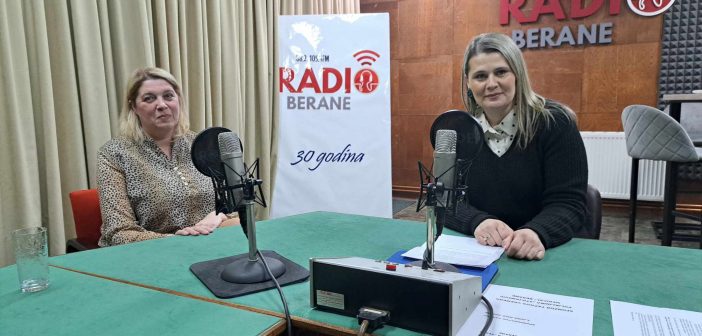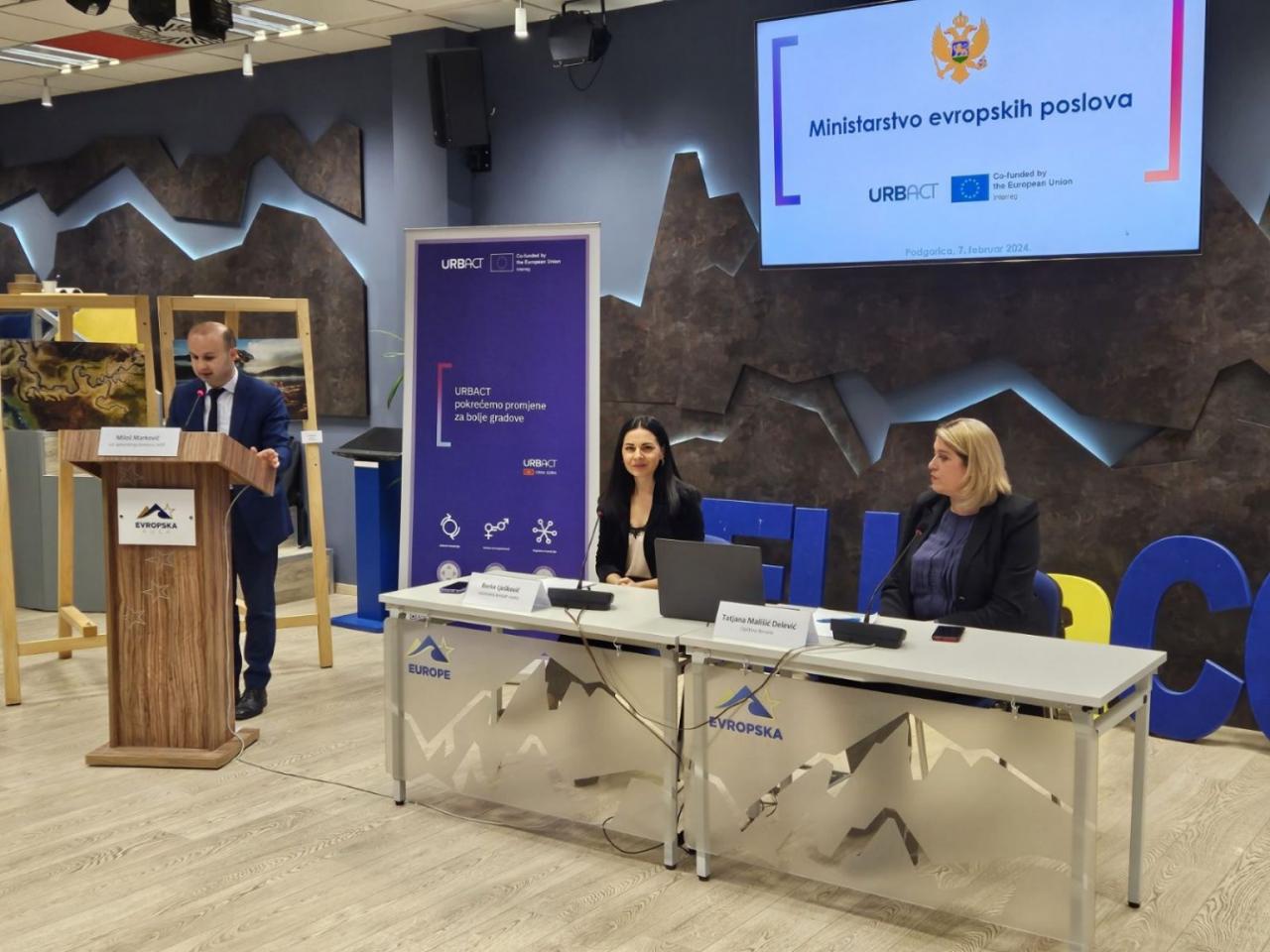On the 7th of February 2024, the Ministry of European Affairs organized an Info Day in Podgorica to present the Call for Proposals for creating networks dedicated to the transfer of innovations under the URBACT IV program. This event provided an insightful platform for municipalities across Montenegro and 35 European countries to explore collaborative opportunities.
Miloš Marković, the acting Director General of the Directorate for European Territorial Cooperation, set the stage by emphasizing the unique approach of the URBACT program. "What makes URBACT different from other programs of European territorial cooperation is its primary focus on the local level” - said Marković - "URBACT recognizes the role that cities play in solving complex social challenges and enables local governments to be the initiators of change,". Marković also commended the notable success of Montenegrin local self-governments in the previous year, with three municipalities – Bijelo Polje, Berane, and Budva – securing support for participation in four networks addressing various aspects of sustainable urban development.
Tatjana Mališić Delević, the project manager of the Municipality of Berane, took the opportunity to share insights into the experience of implementing the ECONNECTING network. Collaborating with partners from eight cities across the European Union, the project focuses on developing a strategy for better connectivity between rural and urban areas. "Within our network, we want to sustainably reduce distances within the municipality, increase the number of green areas, shape humane public spaces, and encourage sustainable mobility and the inclusion of citizens in the planning process," stated Mališić Delević.
Kristijan Radojčić from the URBACT Secretariat emphasized the significance of networks of cities within the program, describing them as incubators for local governments. Through networking, cities have the opportunity to learn from each other, exchange good practices, and inspire one another, fostering collaboration across different European countries, systems, and cultures.
The Call for Innovation Transfer Networks remains open until March 20, 2024. This presents an invaluable opportunity for European cities to adapt and implement innovative projects within their local contexts. With a plan to create 10 networks, each with a budget of up to 550.000 euros, the initiative aims to facilitate collaboration among 5 to 7 partners, including the lead partner.

Also, Berane did not miss the opportunity to talk again about URBACT’s networks during the local radio show "Chronicle of the City", during which Tatjana Mališić Delević shared insights about Berane’s involvement in ECONNECTING Action Planning Network. Listeners got a firsthand account of the challenges faced, lessons learned, and the positive impact of Berane's participation in the ECONNECTING initiative. “I hope Berane's journey within the ECONNECTING network serves as a beacon for other municipalities aspiring to participate in collaborative initiatives aimed at fostering innovation and sustainable development” was Tatjana’s comment.


